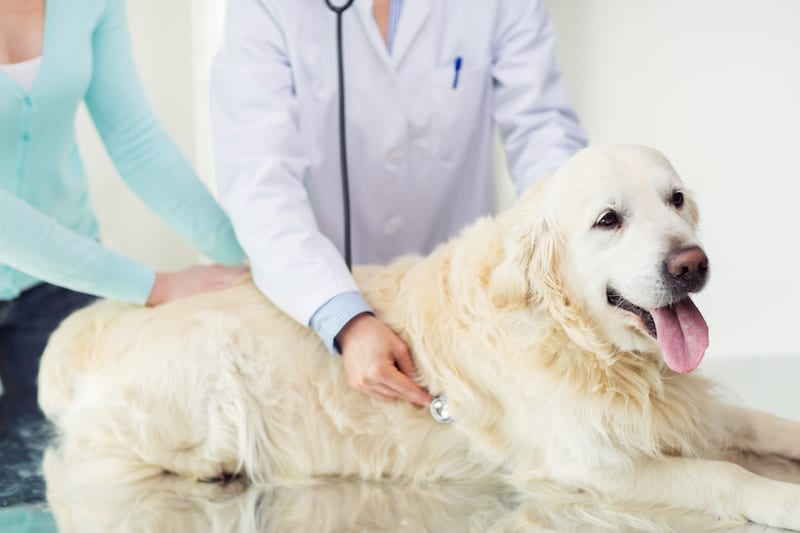Understanding Pet Wellness Exams: The Key to Lifelong Health for Your Pet

Introduction to Pet Wellness Exams
Pet wellness exams are proactive veterinary visits designed to monitor and maintain your pet’s overall health. These appointments, typically scheduled annually, allow veterinarians to detect potential health issues before they become severe and to provide preventive care tailored to your pet’s needs. Like a regular check-up for humans, a pet wellness exam is a cornerstone of responsible pet ownership and can add years of quality life to your companion. [1] [2]
What Happens During a Pet Wellness Exam?
During a pet wellness exam, your veterinarian conducts a comprehensive, head-to-tail evaluation of your pet. This includes:

Source: aahneenah.com
- Physical Examination: The vet assesses your pet’s skin, coat, eyes, ears, teeth, and body condition. They check for abnormalities, parasites, lumps, or signs of illness. For example, the vet may palpate the abdomen and lymph nodes to detect pain or swelling. [1]
- Behavior and Lifestyle Assessment: You’ll discuss your pet’s diet, exercise habits, behavior changes, and daily routines. This helps the vet identify patterns that could signal underlying health issues. [4]
- Preventive Care: The exam is an opportunity to administer vaccines, perform fecal tests for parasites, and recommend flea, tick, and heartworm prevention as appropriate. [2]
- Diagnostic Screening: Depending on your pet’s age, breed, and health status, your veterinarian may order bloodwork, urinalysis, or other diagnostic tests to check for early signs of disease. [3]
In some clinics, you may be asked to bring a fresh stool sample for parasite screening. [5]
Why Are Pet Wellness Exams Important?
Pet wellness exams offer several benefits for both pets and owners:
- Early Detection: Many diseases, such as diabetes, kidney disease, or cancer, may have subtle or no initial symptoms. Regular exams help catch these conditions early, often resulting in less invasive and more successful treatment. [2]
- Prevention: Wellness exams are the best time for vaccinations, dental cleanings, and parasite prevention. Preventive care can keep your pet healthier and reduce future veterinary costs. [1]
- Behavioral Support: Vets can address behavioral changes, such as increased aggression or withdrawal, which might indicate health issues or environmental stressors. [3]
- Nutrition and Weight Management: Obesity is a common concern in pets. The wellness exam is an opportunity to review your pet’s diet and receive recommendations for maintaining a healthy weight. [3]
How to Prepare for a Pet Wellness Exam
Preparation can help you and your pet get the most from the visit. Consider the following steps:
- Keep Records: Bring a record of your pet’s previous medical history, vaccination status, and any medications or supplements they take.
- Note Changes: Make a list of any changes in your pet’s appetite, behavior, or physical condition since the last visit. Even minor changes can be important for your veterinarian to know.
- Sample Collection: If requested, collect a fresh stool or urine sample shortly before your appointment. This can help screen for parasites or urinary tract issues. [5]
- Transport Safely: Use a secure carrier for cats and small dogs, and ensure all pets are safely restrained for car travel.
Being prepared means your veterinarian can focus on your pet’s health rather than tracking down missing information.
What to Expect During the Visit
When you arrive, the veterinary team will usually review your pet’s information and ask about any recent health or behavioral changes. After the initial discussion, the veterinarian will perform a thorough physical exam. Depending on your pet’s needs, the vet may recommend additional tests or treatments, such as dental cleaning, bloodwork, or vaccinations.
At the end of the appointment, your vet will review findings, answer questions, and offer guidance for ongoing care. You’ll receive recommendations for nutrition, exercise, and any follow-up visits or treatments that may be needed. [4]

Source: psyeta.org
How Often Should You Schedule a Pet Wellness Exam?
Most veterinarians recommend annual wellness exams for healthy adult pets. Puppies, kittens, senior pets, and those with chronic health conditions may require more frequent visits (every 6 months or as advised). Your vet will provide a schedule tailored to your pet’s age, lifestyle, and risk factors. [2]
Pets with ongoing medical needs, such as diabetes or heart disease, may benefit from more regular monitoring and adjustments to their care plan.
Accessing Pet Wellness Exams: Step-by-Step Guidance
If you want to schedule a pet wellness exam, follow these actionable steps:
- Identify a Veterinarian: Choose a reputable veterinary clinic in your area. You can search online using terms like “veterinarian near me” or contact your local animal shelter or pet store for recommendations.
- Book an Appointment: Call the clinic directly or use their online booking platform if available. Be sure to mention if it’s your pet’s first visit or if you need specific services such as vaccinations or lab tests.
- Prepare Documentation: Gather any previous veterinary records, a list of medications, and recent health observations.
- Follow Clinic Instructions: Some clinics may request a fresh stool sample or ask you to withhold food for a few hours before the exam. Follow any specific guidance provided when scheduling your appointment.
- Attend the Exam: Arrive on time and bring your pet in a secure carrier or on a leash. Be ready to discuss your pet’s habits, diet, and any concerns you have.
- Discuss Preventive Care: Ask your veterinarian about recommended vaccines, parasite prevention, dental care, and nutrition for your pet’s life stage and lifestyle. [4]
If you need financial assistance for veterinary care, consider researching local animal welfare organizations or pet insurance providers. Many clinics also offer wellness plans that spread out the cost of preventive care over monthly payments. To find such programs, search for “pet wellness plans” along with your city or state on reputable veterinary websites.
Challenges and Solutions
Some pet owners worry about the cost or stress of veterinary visits. If your pet is anxious, discuss options with your veterinarian, such as bringing familiar items or using calming products. If cost is a concern, ask about payment plans, community clinics, or pet insurance. Many communities also have non-profit organizations providing low-cost preventive care; searching for “low-cost pet wellness clinic” plus your location can help you find these resources.
Alternatives and Additional Resources
While annual wellness exams at a veterinary clinic are the gold standard, some owners supplement this care with at-home health checks, telemedicine consultations, or mobile veterinary services. Telemedicine can be useful for follow-up or non-urgent issues, but should not replace in-person exams. Mobile vets may offer exams in your home for pets with travel anxiety or mobility issues.
For more information or to locate a qualified veterinarian, you can visit the American Veterinary Medical Association’s (AVMA) website or ask your local animal shelter for trusted referrals. Always verify credentials and reviews when choosing a provider.
Key Takeaways
Pet wellness exams are a vital part of preventive care, supporting early detection of disease, vaccination, and overall well-being for your pet. By scheduling regular exams, preparing effectively, and following your veterinarian’s recommendations, you can help your pet enjoy a longer, healthier life. If you have questions or need assistance finding a veterinary provider, consider contacting your local animal shelter, searching online for reputable clinics, or visiting the AVMA’s official website for guidance and resources.
References
- [1] NMAH Veterinary Hospital (2024). What is a Pet Wellness Exam? Costs, Prep, & What to Expect.
- [2] MetroVet Clinic (2023). What is a Pet Wellness Exam? [What to Know Before the Appt]
- [3] MPC Vet Care (2023). What to Expect During Your Pet’s Wellness Exam.
- [4] VCA Animal Hospitals (2023). Wellness Examination in Dogs.
- [5] Burbank Pet Hospital (2024). Heading to Your Pet’s First Wellness Exam? Here’s What to Expect.






